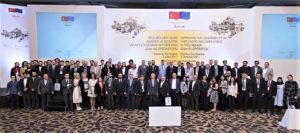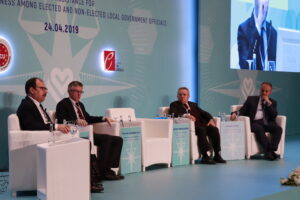
Technical Assistance for the Operation of “Hand Made in Hatay”
However, Antakya craftspeople and businesses can offer original designs and fine workmanship and can draw on a long master-apprentice tradition and rich multicultural history, the city has not lived up to its potential. This initiative, the Hand Made in Hatay project is part of a larger initiative, financed

Technical Assistance for Improving the Quality of Public Employment Services
Quality of public employment services depends on the methods of attempting to attract and retain more people in employment. Thus, the operation aimed to create a capacity building and institutional development by enhancing the capacities of the Beneficiary and stakeholders to improve the public employment services that are

Technical Assistance for Improving the Adaptability of Employers and Employees in TR33
Qualified individuals mean a powerful region and a powerful region requires investing in human resources. Hence, this assignment aimed to encourage employers and employees of SMEs in the TR33 Region (Kütahya, Afyonkarahisar, Manisa, and Uşak provinces), particularly by promoting lifelong learning. More specifically, the project’s purpose was to

Technical Assistance for Promoting Decent Future of Work Approach with a Focus of Gender Equality
The objective of the contract is to strengthen the institutional capacity of the Department of Employment Policies (DEP) of the General Directorate of Labour (DG Labour) in the MoLSS, its relevant stakeholders, social partners and NGOs within the scope of decent future of work approach with a focus

Technical Assistance for Promoting Women’s Employment in Turkey
The employability of women has been a challenging issue in Turkey for decades. The labour market of women needs to be improved in terms of the existing capacity to design, develop and implement policies to attract and retain more people in employment, particularly by increasing the participation of

Technical Assistance for Prevention of Corruption and Promotion of Ethics
Despite the OECD’s assessment that Turkey has made significant progress since 2007 in its efforts to combat corruption, the issue continues to represent an obstacle to economic and social progress and, potentially, to greater integration with the EU. The overall objective of the project was to contribute to

